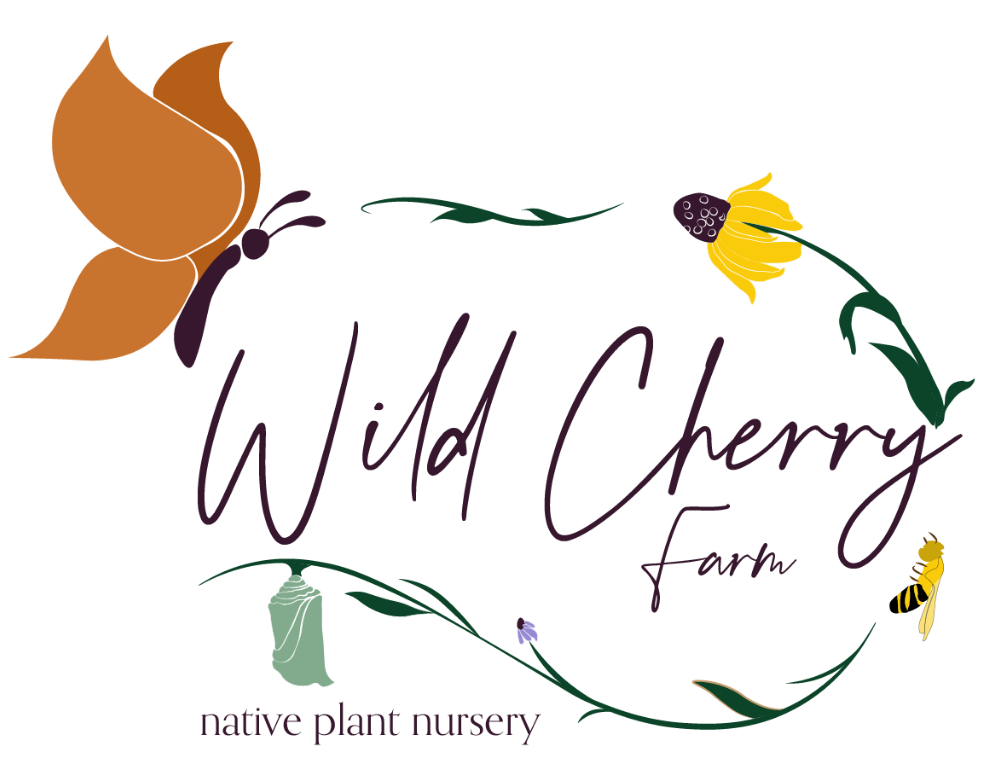Cup Plant (Silphium perfoliatum)
The Cup Plant can be a sight to behold. It attracts all kinds of native bees, butterflies, and skippers (illinoiswildflower.info). It is the host plant for 6 species of butterflies and moths in our area (nwf.org), including the threatened Two-spotted Eucosma and Giant Eucosma Moth (mnfi.anr.msu.edu). It is also the host to 3 specialist bees (Johnson and Colla, 2023). The Xerces Society considers this a preferred pollinator plant (Xerces.org). I love this plant; it is a joy to watch the finches fighting over the seeds and the frogs curled up in the leaf cups. With that being said, Cup Plant will self-seed with abandon, so make sure you choose the spot for this awesome plant with care. Oddly enough, even with vigorous self-seeding, it is considered threatened in Michigan and is legally protected (mnfi.anr.msu.edu).
Photo Credit: Udo Schmidt
The Cup Plant can be a sight to behold. It attracts all kinds of native bees, butterflies, and skippers (illinoiswildflower.info). It is the host plant for 6 species of butterflies and moths in our area (nwf.org), including the threatened Two-spotted Eucosma and Giant Eucosma Moth (mnfi.anr.msu.edu). It is also the host to 3 specialist bees (Johnson and Colla, 2023). The Xerces Society considers this a preferred pollinator plant (Xerces.org). I love this plant; it is a joy to watch the finches fighting over the seeds and the frogs curled up in the leaf cups. With that being said, Cup Plant will self-seed with abandon, so make sure you choose the spot for this awesome plant with care. Oddly enough, even with vigorous self-seeding, it is considered threatened in Michigan and is legally protected (mnfi.anr.msu.edu).
Photo Credit: Udo Schmidt
The Cup Plant can be a sight to behold. It attracts all kinds of native bees, butterflies, and skippers (illinoiswildflower.info). It is the host plant for 6 species of butterflies and moths in our area (nwf.org), including the threatened Two-spotted Eucosma and Giant Eucosma Moth (mnfi.anr.msu.edu). It is also the host to 3 specialist bees (Johnson and Colla, 2023). The Xerces Society considers this a preferred pollinator plant (Xerces.org). I love this plant; it is a joy to watch the finches fighting over the seeds and the frogs curled up in the leaf cups. With that being said, Cup Plant will self-seed with abandon, so make sure you choose the spot for this awesome plant with care. Oddly enough, even with vigorous self-seeding, it is considered threatened in Michigan and is legally protected (mnfi.anr.msu.edu).
Photo Credit: Udo Schmidt
Life Cycle: Perennial
Sun Exposure: Full, Partial sun
Soil Moisture: Medium-wet, Medium, Medium-dry
Height: 4-10 feet
Plant Spacing: 2-4 feet
Bloom Time: July-September
Bloom Color: Yellow
Advantages: Bird Favorite, Pollinator Favorite, Deer Resistant, Recommended, but can be a very vigorous self-seeder.
Host Plant: 6 species of butterflies and moths use this as a caterpillar host plant in our area (nwf.org)
Specialist Bee: Andrena aliciae, Paranthidium jugatorium, Megachile inimical (Johnson and Colla, 2023)
Species of Concern: State Status: Threatened (legally protected) State Rank: Imperiled (mnfi.anr.msu.edu)
Beneficial for Endangered or Threatened Species: Two-spotted Eucosma (Eucosma bipunctella) (mnfi.anr.msu.edu) and Giant Eucosma Moth (Eucosma giganteana) (mnfi.anr.msu.edu)
Resource: Johnson, Lorraine, and Sheila Colla. A Northern Gardener’s Guide to Native Plants and Pollinators: Creating Habitat in the Northeast, Great Lakes, and Upper Midwest. Island Press, 2023





